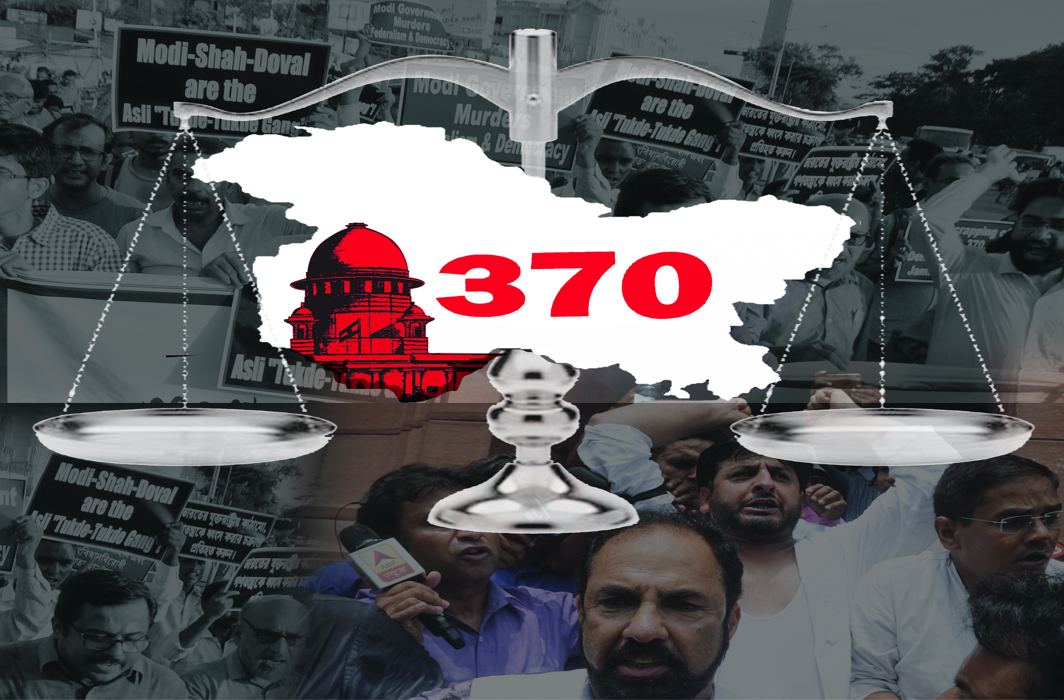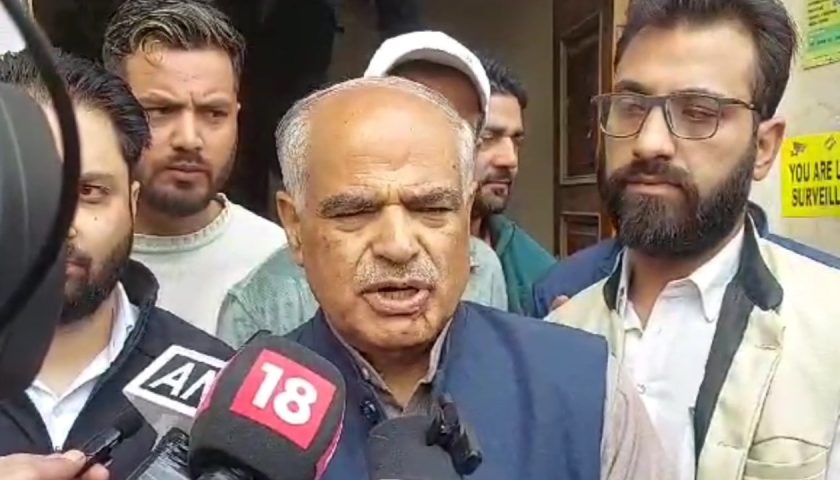A lot has changed in Jammu and Kashmir following the abrogation of Article 370 in 2019. With the SC set to deliver its verdict on petitions challenging the move, a look at what has changed.
The Supreme Court, on Monday (December 11), will pronounce its verdict on a batch of petitions challenging the abrogation of Article 370 of the Constitution. Article 370, which granted a special status to the erstwhile state of Jammu and Kashmir, was repealed in August 2019. Subsequently, the state was bifurcated into two Union Territories – Jammu and Kashmir, and Ladakh.
Over the last four years, as multiple petitions challenging the legality of this abrogation were sub-judice, much has changed on the ground. We take a look.
J&K Cadre no more
This was one of the first changes to take effect, as J&K became a Union Territory in October 2017. Despite protests from J&K cadre officers, it was merged with the Arunachal Pradesh-Goa-Mizoram and Union Territory (AGMUT) cadre of the Indian Administrative Service.
Redefining domicile laws
In April 2020, the Centre introduced the domicile clause for J&K through the J&K Reorganisation (adaptation of state laws) Order 2020, redefining residence and recruitment rules for the erstwhile state. This made any individual who has resided in J&K for a period of fifteen years, or has studied for a period of seven years and appeared in class 10th/12th examination in an educational institution located in the UT, eligible for a domicile certificate.
This replaced the previously issued Permanent Resident Certificates, and raised fears of demographic change in the territory, with local politicians in opposition. At the same time, this has been a boon for 3.6 lakh West Pakistan Refugees, roughly 4,000 valmikis and about 24,000 migrant workers residing in J&K for a long period of time.
Amendments to land laws
The Ministry of Home Affairs, through an order in October 2020, introduced amendments to 14 laws of the former state of J&K, repealing 12 others
Section 4 of the J&K Alienation of Land Act stated that “transfer of land in favour of any person who is not a State Subject, is prohibited.” Likewise, section 20A of the Big Landed Estates Abolition Act said that “No land shall be transferred to such tillers as are not State Subjects.” State subjects were permanent resident certificate holders.
IPC comes into force
With the revocation of J&K’s special status through the striking down of Articles 370 and 35A, all central laws became applicable in J&K, and the erstwhile state’s own constitution became defunct. As such, the Ranbir Penal Code, applicable in J&K until August 2019, was also replaced with the IPC. In November 2019, the prosecution wing was also separated from the executive police in J&K.
District Development Councils introduced
In October 2020, DDCs were created as a new unit of governance in Jammu and Kashmir. A legislation to this effect was brought in by the Ministry of Home Affairs through an amendment to the Jammu and Kashmir Panchayati Raj Act, 1989.
The system functions as a third tier of governance in the UT, with each district sending 14 elected members (in rural areas) to constitute the DDC. The Centre, while introducing DDCs, argued that they would lead to the empowerment of grassroots democracy region.
Polls to elect DDCs were conducted in December 2020 with all mainstream parties taking part. The PAGD (People’s Alliance for Gupkar Declaration), the mainstream coalition formed in the wake of the constitutional changes of August 2019, won by a landslide and termed the election a referendum on the “unilateral” actions of the Centre.
Delimitation Commission set up
In March 2020, the government had set up the Delimitation Commission, headed by retired Supreme Court judge Ranjana Prakash Desai. The delimitation of Assembly constituencies was completed in May 2022, with the Commission recommending seven additional constituencies — six for Jammu and one for Kashmir — taking the total number of seats in the UT to 90, from 83 earlier.
Delimitation was set to be a precursor to start the political process in Jammu And Kashmir, however, there have been no indications of an Assembly election in J&K since.
State Commissions defunct
Since the former state was downgraded to a Union Territory, the legal frameworks that directed the functioning of its state commissions were also taken away. Key among these were the state Human Rights Commission, the state Women’s Commission and the state Information Commission.
Without these state commissioners, residents have to petition national-level commissions which, residents state, have raised difficulties in both access and waiting time with regard to applications.
State Investigation Agency founded
In November 2021, the J&K administration accorded sanction for the creation of a new, specialised investigating agency to be termed — State Investigation Agency (SIA). The SIA was set up as the nodal agency for “coordinating with the National Investigation Agency (NIA) and other Central Agencies and shall take such other measures as may be necessary for speedy and effective investigation and prosecution of terrorism related cases.”
The agency works aside from the CID and allied agencies working in the UT. The need for setting up a new agency was felt, as per officials, “for specialised investigation” into terror cases, not referred to the NIA. Source






